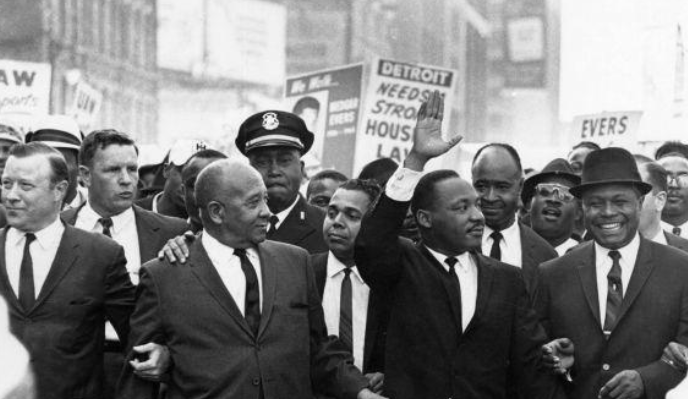In the midst of the turbulent 1960s, a resounding call for justice and equality echoed through the halls of Cobo Hall (now TCF Center) in Detroit, Michigan. On June 23, 1963, civil rights leader Martin Luther King Jr. delivered a stirring speech during the “Walk to Freedom” march, a pivotal event in the struggle for civil rights and racial equality in the United States. This precursor to his iconic “I Have a Dream” speech, delivered later at the March on Washington, solidified his status as a prominent advocate for change.
Amid a sea of attendees that stretched far beyond the convention center’s walls, King’s words reverberated with a sense of urgency and hope. He addressed not only the immediate concerns of racial justice but also the intertwined challenges of economic inequality, housing discrimination, and employment opportunities. King’s speech in Detroit showcased his unwavering commitment to nonviolent resistance and unity among all races, emphasizing that the fight for civil rights was a shared struggle that transcended skin color.
The “Walk to Freedom” march and King’s resonant words captured the attention of the nation and laid the groundwork for the broader civil rights movement. The event brought together diverse communities, fostering a sense of solidarity and determination to dismantle systemic racism. King’s vision of a more just and equal society echoed through the streets of Detroit, inspiring countless individuals to join the ongoing battle for civil rights.
As history unfolded, the significance of King’s speech in Detroit became undeniable. The march and the speech served as a catalyst for change, galvanizing support for civil rights reforms and highlighting the urgent need to address racial disparities. The legacy of this momentous event endures as a testament to the power of words, unity, and the relentless pursuit of justice, reminding us that the fight for civil rights is an ongoing journey that requires unwavering commitment and collaboration.


